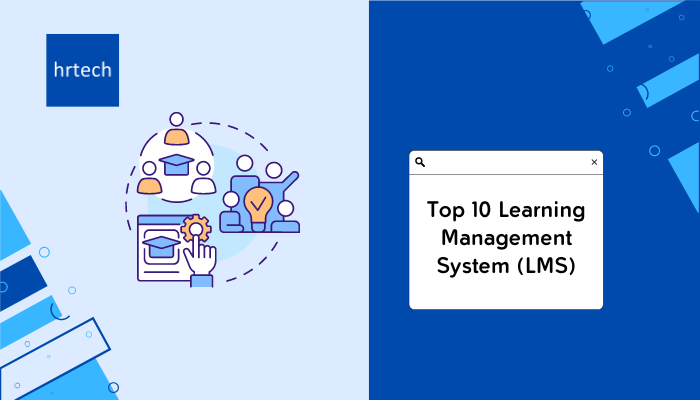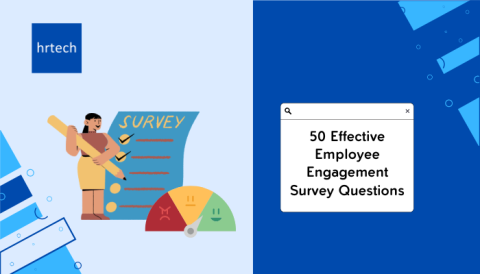Selecting the best learning management system (LMS) doesn’t have to be challenging anymore.
In this guide, we share our top 10 picks for the best LMS of 2024 with pros, cons, pricing and other crucial details. Here’s a quick overview:
| LMS: | Best For: | Pricing: |
| NetSkill | Corporate Training | Available on request |
| ProProfs | LMS For Employee Training | $1.99/active user/month, 15-day money-back guarantee |
| ArcLab | Mobile Learning | Limited free plan available, starts at $4 per user per month |
| iSpring | Enterprises | Free trial available, starts at $2.99 per user per month |
| Moodle | Budget Option | Free open source platform |
| TalentLMS | Small Businesses | Limited free plan, starts at $69/month for up to 40 users |
| 360Learning | Compliance Training | Free trial available, starts at $8 per user per month |
| Litmos | Healthcare | 14-day free trial available, pricing available on request |
| LearnWorlds | Course Creators | Free trial available, starts at $24 per month |
| Northpass | Customer Training | Available on request |
Keep reading till the end to explore a detailed review of each software. But first, let’s have a quick look at what an LMS actually means, and what are the key features of the best LMS platform.
What Is A Learning Management System (LMS)?
A Learning Management System (LMS) is a software platform that allows businesses to create, manage, and deliver educational content to their employees, customers, or students.
It serves as a central place for all learning materials, making it easy for learners to access courses, track their progress, and interact with instructors and other learners.
What Makes The Best Learning Management System (LMS)?
The best Learning Management Systems (LMS) offer a combination of features that make learning engaging, effective, and easy to manage.
Some key features to look for include:
- User-friendly interface – The LMS should be intuitive and easy to use for both learners and administrators.
- Customization options – The ability to customize the look and feel of the platform, as well as the content and learning paths, is essential for creating a customized learning experience.
- Mobile compatibility – With more and more learners accessing content on-the-go, the best LMS platforms offer mobile apps or responsive designs that work seamlessly on any device.
- In-depth reporting and analytics – Detailed insights into learner progress, course completion rates, and other key metrics help administrators make data-driven decisions and improve the overall learning experience.
- Integration capabilities – The ability to integrate with other tools and systems, such as HR software or content creation tools, simplifies workflows and makes it easier to manage learning across the organization.
Our Selection Criteria For The Top 10 LMS Software
To determine the best Learning Management Systems (LMS) for 2024, we evaluated each platform based on a set of carefully chosen criteria.
We gave different weights to each scoring factor based on their importance in the selection process. And based on that, we gave our final scores to each LMS software out of 5.
| Scoring Factor: | Weight: |
| Affordability | 25% |
| Ease Of Use | 20% |
| Features And Functionality | 20% |
| Customization And Branding | 15% |
| Customer Support | 10% |
| Integration Capabilities | 5% |
| Scalability | 5% |
- Affordability (25%) – We prioritized LMS platforms that offer a good value for money, with transparent pricing and flexible plans that cater to different budgets and needs.
- Ease of Use (20%) – Platforms that are intuitive and user-friendly scored higher in our rankings, as they require less training and support for both learners and administrators.
- Features and Functionality (20%) – We evaluated each LMS based on the breadth and depth of its features, including course creation tools, assessment options, reporting capabilities, and more.
- Customization and Branding (15%) – The ability to customize the look and feel of the platform to match the organization’s brand was an important consideration in our rankings.
- Customer Support (10%) – We gave higher scores to LMS providers that offer reliable and responsive customer support, including live chat, phone support, and extensive documentation.
- Integration Capabilities (5%) – Platforms that can seamlessly integrate with other tools and systems, such as HR software or content creation tools, received higher scores in our rankings.
- Scalability (5%) – We considered each LMS’s ability to scale as the organization grows, with higher scores given to platforms that can accommodate a large number of users and courses without compromising performance.
The 10 Best Learning Management System (LMS) Of 2024
1. NetSkill – Best LMS For Corporate Training
Our Score: 4.2/5 (Very Good)
NetSkill is a well-known learning management system (LMS) used by businesses of all sizes, from startups to large Fortune 500 companies. It provides an AI-powered platform that makes corporate training and employee upskilling easy and effective.
| Pros: | Cons: |
| Easy to use and mobile-friendly | Too complex for very small businesses |
| Gamified learning for high engagement | Higher pricing compared to some alternatives |
| Seamless integration with existing systems | Requires some technical knowledge for setup |
NetSkill comes with an AI-powered LMS that offers gamified and customized learning experience.
But apart from that, you also get a huge library of over 500 different courses focused on corporate training. This makes it stand out as the best LMS for corporate training.
NetSkill is particularly well-suited for medium to large businesses that want to invest in employee development and bridge skill gaps.
However, for very small businesses with simple training needs, NetSkill might offer more features than necessary. In such cases, a more basic and affordable LMS like TalentLMS could be a better fit.
But overall, as a dedicated corporate training platform with hundreds of specialized courses, NetSkill is a great option for medium businesses, startups, and growing enterprises.
Pricing:
Exact pricing details are available on request.
2. ProProfs Training Maker – Best LMS For Employee Training
ProProfs Training Maker – Best LMS For Employee Training
ProProfs Training Maker is a cloud-based LMS designed for enterprises of all sizes and across industries. It’s delightfully easy, flexible, and scalable. You can use it to deploy online training programs anytime, anywhere, and on any device.
| Pros: | Cons: |
| Easy to use | No downloadable or on-premise version |
| Prebuilt ready-to-use courses | No dark viewing mode for UI |
| 24/7 human support | No dedicated account manager for the free plan |
The platform simplifies course creation. Its AI course creator enables users to quickly develop customized courses by auto-generating content based on provided topics, layout, chapters, pages, and existing materials.
There’s a vast library of prebuilt courses taught by experts. They cover diverse topics and can be used as-is or tailored to meet specific training needs.
Support for multiple instructors allows collaborative course creation and management. Instructors can co-develop, update, and deliver courses seamlessly. This promotes teamwork and consistency across training initiatives.
Similarly, the LMS’ multilingual support ensures accessibility for global teams by offering course content in multiple languages and breaking language barriers.
Compliance with SCORM and xAPI standards ensures compatibility with other learning management systems. This enables seamless integration, tracking, and reporting for a comprehensive training ecosystem.
Mobile-friendliness makes ProProfs Training Maker ideal for on-the-go learners, as courses are fully responsive across devices. This ensures that users can access training anytime, anywhere, thereby boosting engagement and convenience.
Pricing:
Forever free for small teams. The plan plans start at $1.99/active user/month. There are no hidden charges. 15-day money-back guarantee.
3. ArcLab – Best LMS For Mobile Learning
Our Score: 4.3/5 (Very Good)
ArcLab is an AI-powered LMS for workforce training and development. It particularly stands out for its focus on mobile-based training modules, especially helpful for training remote employees.
| Pros: | Cons: |
| Mobile-friendly and easy-to-use interface | Limited advanced reporting and analytics |
| AI Powered feature for easy course development | User interface could be better |
| Customizable branding and module design | Not suitable for complex training |
The platform’s mobile-friendly interface and support for multiple languages make it easy for employees to access learning content on-the-go.
Its AI-powered features simplify the content creation process, which allows you to quickly convert existing training materials into engaging nano learning modules.
Also, the customizable branding and design options ensure that the learning experience aligns with the organization’s identity.
However, for businesses with complex compliance training needs or those requiring advanced reporting and analytics, ArcLab may not be the most suitable choice. In such cases, platforms like 360Learning or Litmos could be better alternatives.
But if your organization has a large remote workforce and needs a mobile-friendly training solution, ArcLab is a nice choice.
Pricing:
Limited free plan available for up to 25 users. Paid plans start at $4 per user per month. Affordable for small teams with less number of learners. But per user-based pricing adds up easily and increases the overall monthly cost.
4. iSpring – Best LMS For Enterprises
Our Score: 4.7/5 (Excellent)
iSpring is a powerful learning management system (LMS) designed for enterprises. Using it, large organizations can onboard, upskill, and certify their teams quickly and efficiently.
| Pros: | Cons: |
| Fast 24/7 customer support | Slightly expensive than other LMS |
| Easy-to-use interface | Too many features for small businesses with basic requirements |
| Feature-packed solution | Advanced features can take time to implement |
iSpring stands out as the best LMS for enterprises due to its extensive feature set and ease of use.
The platform enables large organizations to quickly create and implement training courses. This efficiency is crucial for enterprises with diverse training needs and large employee bases.
iSpring’s mobile app allows employees to learn on-the-go, even in offline mode, ensuring that training can be accessed anytime, anywhere.
The platform’s complete feature set covers various enterprise training needs, from new hire onboarding to compliance training, product training, and employee performance appraisal.
However, for smaller businesses with simpler training requirements, iSpring might be more complex and a bit costly than necessary. In such cases, a more affordable platform like TalentLMS could be a better fit.
In short, if your enterprise is looking for an advanced LMS that’s easy to learn and implement, iSpring is an excellent choice.
Pricing:
Free trial available. Paid plans for just iSpring LMS start at $2.99 per user per month for up to 50 users making it much more affordable than ArcLab.
Multiple plans are available and pricing decreases with increase in total number of users. Overall, it’s an easily scalable solution.
5. Moodle – Best Free LMS
Our Score: 3.7/5 (Good)
Moodle is a popular open-source learning management system (LMS) designed to help educators create effective online courses. It has a large user base and is trusted by many educational institutions worldwide.
| Pros: | Cons: |
| Customizable | Doesn’t have a dedicated customer support |
| Feature-Packed | High learning curve |
| Open Source and Free | Needs a server to host |
Moodle stands out as the best free LMS due to its extensive features and flexibility.
You can create online courses without any software cost (only server cost required for hosting), making it a suitable option for those just starting out or looking for a budget-friendly LMS.
Moodle’s large community of users and developers ensures that the platform is constantly improving and well-supported.
The best thing is its open-source nature allows for extensive customization and flexibility. So that means you can customize the platform to your specific needs.
Additionally, the wide range of available plugins further extends Moodle’s functionality, making it a highly flexible and customizable solution.
However, Moodle may not be the best choice for institutions or businesses without dedicated technical resources, as it requires self-hosting and setup.
The platform’s interface can also be less intuitive compared to some paid alternatives, which may result in a steeper learning curve for new users.
But overall, if you’re looking for a cost-effective and flexible LMS, Moodle is a top choice.
Pricing:
Open Source software so it’s completely free to use. However, you do need to host it on a server which can add up the overall monthly cost of operating the LMS.
6. TalentLMS – Best LMS For Small Businesses
Our Score: 4.9/5 (Excellent)
TalentLMS is a cloud-based learning management system (LMS) designed for businesses of all sizes, with a focus on small businesses.
It offers an easy-to-use platform for creating and managing online courses, making it a popular choice for companies looking to move their training online.
| Pros: | Cons: |
| User-friendly interface for easy course creation | Custom reports and live chat support only available on higher-tier plans |
| Highly affordable pricing plans | Limited customization than other platforms |
| Great customer support | Lacks some advanced features compared to other LMS |
TalentLMS stands out as the best LMS for small businesses due to its user-friendly interface and affordable pricing.
The platform makes it easy for small companies to create and manage online courses without requiring extensive technical knowledge. The free plan and scalable paid options make it an accessible choice for businesses with limited budgets.
TalentLMS’s support for various content types and eLearning standards ensures that businesses can create engaging courses using existing materials or by developing new content.
Plus, the platform’s gamification features and blended learning options further enhance the learning experience, keeping learners motivated and engaged.
However, for businesses requiring extensive customization or advanced features, TalentLMS may not be the best fit. In such cases, more feature-packed platforms like iSpring or StellarUp could be better options.
That said, if you’re looking for an affordable, user-friendly LMS for a small business, it’s a great pick.
Pricing:
Limited free plan available, which allows up to 5 users, and 10 courses, along with unlimited email support option.
Paid plans start at $69/month when you select the annual plan for up to 40 users (which makes it less than $2 per user per month).
Also, higher tier plans available for 100 users to 1000 users. Easily scalable and affordable solution.
7. 360Learning – Best LMS For Compliance Training
Our Score: 4.4/5 (Very Good)
360Learning is a learning management system (LMS) that focuses on delivering effective compliance training.
It helps businesses automate and manage mandatory training, ensuring that employees stay up-to-date with regulatory requirements and company policies.
| Pros: | Cons: |
| Effectively automates compliance training | Too many features for small businesses |
| Gamified learning experience | Some advanced features have steep learning curve |
| Provides customized reports and certificate tracking | Expensive pricing plans compared to other options |
360Learning is one of the best LMS for compliance training due to its focus on automating and simplifying the entire compliance training process.
The platform’s automated enrollment and reminder features ensure that employees never miss mandatory training, reducing the risk of non-compliance.
Furthermore, 360Learning’s engaging, gamified learning experiences keep learners motivated and help them retain important information.
However, for organizations with simpler compliance training needs, 360Learning may offer more features than necessary. In such cases, a more simple solution like TalentLMS or Litmos could be a better fit.
But if your business needs to deliver effective compliance training to a global workforce, 360Learning is an excellent choice.
Pricing:
Free trial available. Starts at $8 per user per month. Expensive than other solutions like TalentLMS, iSpring, ArcLab, and even StellarUp. But feature-packed detailed modules make it a suitable option for medium to large-scale businesses.
8. Litmos – Best LMS For Healthcare
Our Score: 4.2/5 (Very Good)
Litmos is a feature-packed LMS just like 360Learning and iSpring. But it particularly stands out as the best LMS for healthcare.
| Pros: | Cons: |
| Easy-to-use platform | Limited customization compared to other advanced LMS |
| Detailed compliance management features | Reporting feature could be more detailed |
| Strong integration with a wide range of softwares | Customer support could be better |
From detailed compliance modules, to a healthcare focused course library, Litmos comes with all essential training features needed in the healthcare industry. The platform’s compliance management features ensure that organizations can deliver training that aligns with industry regulations, reducing the risk of non-compliance.
Litmos’s universal accessibility features make it easy for healthcare teams to access learning anytime, anywhere, on any device.
However, for organizations with more general training needs or those requiring advanced customization options, Litmos may not be the best fit. In such cases, platforms like Moodle, iSpring, or TalentLMS could be better options. But overall, if you’re a healthcare provider looking for an LMS with dedicated healthcare industry features, Litmos is a great choice.
Pricing:
14-day free trial available. Exact pricing details available on request.
9. LearnWorlds – Best LMS For Course Creators
Our Score: 3.9/5 (Good)
LearnWorlds is an all-in-one platform designed for course creators who want to build and sell online courses.
It offers a wide range of tools to help educators and entrepreneurs create engaging learning experiences and grow their e-learning businesses.
| Pros: | Cons: |
| Customizable website builder | Transaction fee on the base plan can add up |
| Built-in marketing and sales tools | Multi-language support is not great |
| Flexible pricing plans | Assessment features are not as detailed as compared to other softwares |
LearnWorlds stands out as the best LMS for course creators due to its complete set of tools for building and selling online courses.
With its vast library of learning activities and assessments, you can create engaging and interactive content that keeps students motivated.
Additionally, with its fully customizable website builder and mobile app builder you can establish a strong brand presence without any coding knowledge.
Furthermore, the built-in marketing and sales tools, including affiliate program management and flexible pricing options, can be really helpful for maximizing income.
Now, for course creators with simpler needs, LearnWorlds offers more features than necessary.
Also, it’s not a suitable option for corporate training or employee development as it is not advanced enough. For that case, TalentLMS or iSpring is a better fit.
That said, if you’re a course creator looking for an all-in-one platform to build, market, and sell your online courses, LearnWorlds is the best pick.
Pricing:
Free trial available. Starts at $24 per month with unlimited paid course flexibility. Starter plan does have a $5 fee per course sale. But high tier plans like $79/month and $249/month don’t have any transaction fee.
10. Northpass – Best LMS For Customer Training
Our Score: 4.1/5 (Very Good)
Northpass is a learning management system (LMS) that focuses on delivering effective customer education programs.
It is designed for mid-market and enterprise companies looking to create engaging and scalable customer training experiences.
| Pros: | Cons: |
| Easy content creation | User interface could be better |
| Highly customizable branding options | Steep learning curve for some advanced features |
| In-depth analytics and reporting features | Limited gamification features compared to other softwares |
Northpass stands out as the best LMS for customer training due to its focus on creating engaging and scalable customer education programs.
The platform’s feature-packed course creation tools and flexible delivery options make it easy for companies to create and deliver training content that meets their customers’ needs.
Furthermore, its highly customizable branding options ensure that the learning experience aligns seamlessly with the company’s brand, creating a standard and professional look.
Additionally, the detailed analytics and reporting features allows you to track learner progress and measure the impact of their training efforts effectively.
However, for smaller businesses or those with simpler customer training needs, Northpass may offer more features than necessary at a higher price point.
In such cases, platforms like TalentLMS could be more cost-effective alternatives.
Overall, for a mid-market or enterprise company looking to create a top-notch customer education program, Northpass is a great choice.
Pricing:
No free trial available (but demo available). Exact pricing details available on request.
Want to explore more software solutions? Check out our hrtech’s marketplace to find out specialized HR tools for your unique requirement.
How To Pick The Best LMS Software?
First, consider your audience. Who will be using the LMS, and what are their learning needs?
If you’re training employees, you may want an LMS with strong compliance tracking features, like 360Learning. For customer education, a platform like Northpass with customizable branding options might be a better fit.
Next, think about your budget. LMS pricing can vary widely, so it’s important to have a clear idea of what you can afford.
For instance, for a small business with limited resources, a cost-effective option like TalentLMS might be the way to go.
On the other hand, for larger enterprises with more complex needs, a higher-priced platform like iSpring could be worth the investment.
Ease of use is another important factor to consider. The best LMS is one that your learners and administrators will actually use, so look for a platform with a user-friendly interface. Litmos, for example, is known for its simplicity and mobile-first design.
Then, consider the specific features and integrations you need. For example, StellarUp integrates with 70 different HR softwares and CRMs. So if integration is your top priority, you can select such software solutions.
As you consider all these factors, you’ll be able to easily pick the right LMS that meets your needs and training goals.
Frequently asked Questions:
What Are The Benefits Of A Learning Management System (LMS)?
Some of the main benefits of LMS include centralized learning platform, learning convenience and flexibility, training consistency, tracking, reporting, cost, and time savings compared to other in-person training methods.
How Much Do LMS Cost?
On average, learning management systems (LMS) cost anywhere between $2-$10 per user per month. Most learning management systems either have a tiered pricing plan based on the total number of users and features you need or based on the per user per month.
Can An LMS integrate with HR and CRM Systems?
Yes, many modern LMS platforms offer integration capabilities with HR and CRM systems. However, the integration can be a bit limited. For instance, although LearnWorlds integrates with CRM and other apps, it only supports the HubSpot CRM integration.
Conclusion
So, what is the best learning management system (LMS)?
As we saw in this guide, the choice of the best LMS depends on several factors like affordability, functionality, integration, and more.
But out of all the top 10 options, here are our top LMS picks based on company size:
- Small Company – TalentLMS, Moodle
- Medium-Sized Company – 360Learning, Litmos
- Large-scale Company – iSpring, StellarUp
Once you clearly consider your requirements, and budget, the choice of the best LMS platform becomes much easier.
Want to explore specific courses and training programs to upskill your HR team? Visit hrtech today to learn more.





